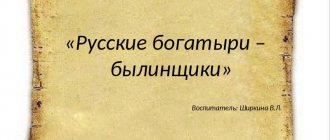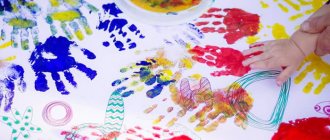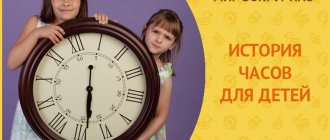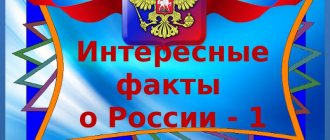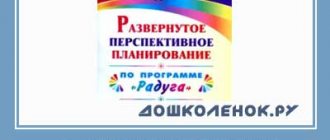Presentation “Hello School” presentation for a speech therapy lesson (preparatory group) on the topic
Slide 1
! Presentation Prepared by: Khismatullina Zuhra Airatovna Teacher-speech therapist MADOU No. 30d/s “Zhuravushka” rep. Bashkortostan City of Kumertau
Slide 2
Presentation “Hello school!” for preschool children. (preparatory group) Goal: to provide initial knowledge about school Objectives: Educational: updating children’s knowledge on the topic “School”, consolidating children’s knowledge. Correctional: expansion of vocabulary on the lexical topic “School”, development of coherent speech, development of auditory speech attention and memory, development of visual attention and memory, development of speech expressiveness. Educational: developing the ability to work in a team, developing the skill of self-control, cultivating a desire to learn.
Slide 3
Prepared by: Khismatullina Zukhra Airatovna. Teacher speech therapist. Republic of Bashkortostan City of Kumertau MADOU d/s No. 30 “Zhuravushka” Email: zuhra.hismatullina @ yandex.ru
Slide 4
Hello! I am the gnome Umka. I want to invite you to an amazing country! To the land of Knowledge!
Slide 5
A great country, a magical country, a huge country of unknown wonders, it will show the way to the heights of wisdom. Experiments, discoveries, solutions, A long line of strict evidence, Little school achievements Will come to us in succession. (Olga Bezymyannaya) What kind of country do you think this is? And how to get to this country? And the School will show us the way to this country.
Slide 6
The school is bright and warm. There are many classrooms in the school. And in the classrooms there are student desks. These tables are called desks.
Slide 7
There is also a blackboard in the office. There the teacher writes various tasks for the children with chalk.
Slide 8
And here she is - the Teacher. The word teacher means to teach. Teach kindness, justice, understanding, love, respect.
Slide 9
Every day the teacher gives the children new knowledge. Children who study at school are called students.
Slide 10
Each student has his own school supplies: textbooks, notebooks, pens, pencils, ruler, glue, pencil case.
Slide 11
Students carry all these supplies to school in their briefcase.
Slide 12
Also, the student has a diary. The diary is the main document of the student. The student writes down homework there. And the teacher puts a mark.
Slide 13
At school, children study for 45 minutes and then go to rest. Rest time is called recess. During recess, children play, ventilate the office, or go to the dining room.
Slide 14
Every day children gain new knowledge. And the teacher always greets and sees off the children with a kind smile.
Slide 15
And now my dear guys, I want to test your knowledge about school. What is the name of a bright and cozy house where children come for knowledge? What do they call desks at school? How can you write on a school board? Who teaches children at school? What is the name of the student's most important document?
Slide 16
Well done! You remember everything correctly! I'm waiting for you in the Land of Knowledge
Interactive activity - game for children 6-7 years old
Summary of correctional lesson.
Topic: We are future first-graders! Group of children by area of work: preparatory general developmental focus, senior correctional focus, preparatory correctional focus Priority educational area: social and communicative Integration of educational areas: cognitive development, speech development Goals and objectives: Development of social and personal readiness. • develop group interaction; • encourage children to accept the position of a student; • develop self-regulation and self-control skills; • help reduce the level of personal anxiety; • develop concentration and auditory perception. Prerequisites of UUD Cognitive
• skills of formation of sensory standards;
• ability to establish cause-and-effect relationships. • ability to carry out classification and serialization on specific subject material; • the ability to perform sign-symbolic actions, coding, decoding objects; • the ability (with the help of an adult) to create action algorithms for solving assigned problems; • the ability to recognize, name and identify objects and phenomena of the surrounding reality. Communicative
• agree on the distribution of functions and roles in joint activities.
• formulate your own opinion and position; • an emotionally positive attitude towards the cooperation process is desirable; • orientation towards a communication partner; • mastery of certain verbal and non-verbal means of communication; • construct a monologue statement and dialogue speech; Regulatory
• the ability to carry out an action according to a model and a given rule;
• ability to maintain a given goal; • ability to work according to instructions from an adult; • the ability to plan your action in accordance with a specific task; • the ability to control your activities based on results; • the ability to adequately understand the assessment of an adult and a peer; Personal
• formation of cognitive and social motivation;
• formation of adequate self-esteem; • developing the ability to come to the aid of a friend, the hero of a fairy tale, etc.; • developing the ability to take into account someone else's point of view; • the ability to realize one’s capabilities, skills, qualities, experiences; Outline of correctional lesson I. Creation of a motivational field (organizational moment). The task of the stage: to motivate children to engage in activities, presupposes the emergence of a desire to work (“I want”) and confidence that everything will work out (“I can”). 1. Greeting “Hello friend” 2. Introduction to a game situation using ICT (presentation “Baby Geo goes to school” stage 1) II. Updating of knowledge The task of the stage: the formation of skills necessary for the “discovery” of new knowledge. 1. “Mental gymnastics” - riddles about school, school supplies - didactic game “Good - Bad” - communicative exercise “In my backpack...” 2. Leading to independent formulation of the topic of the lesson and formulation of the problem. — presentation “Baby Geo goes to school” stage 2 — graphic exercise “The Road to School” III. Children's discovery of new knowledge. The task of the stage: to encourage children to discover new knowledge in joint activities with the teacher.
1. Proposing a hypothesis (assumption), determining the truth and testing judgments in practice; — presentation “Baby Geo goes to school” stage 3 — developmental exercise “4 extra” (interactive board) — motor gymnastics — speech exercise “What did the artist mix up” (interactive board) 2. Fixing a new algorithm (method of action) in children’s speech, in a symbolic form, a subject model, etc. — mnemonic table “Soon to school” — art therapeutic exercise “Funny Colors” — presentation “Baby Geo goes to school” stage 4 IV. Reflection (result). The task of the stage: to organize reflection and self-assessment of children’s activities. 1. Assessment of activities by children and teachers. -mood corner 2. Farewell. -farewell ritual Progress of the lesson
I. Creation of a motivational field (organizational moment)
1. Greeting “Hello friend!” Hello right hand (stretch the right hand forward) Hello left hand (stretch the left hand forward) Hello friend (take the hand of the neighbor on the right) Hello friend (take the hand of the neighbor on the left) Hello, hello friendly circle (waving holding hands) We stand hand in hand in your hand (tightly squeeze each other’s hands) Together we are a big ribbon (expand the circle) We can be small (squat down) We can be big (stand on tiptoes) But no one will be alone (gather in a circle with hands joined) 2. Introduction into a game situation using ICT (presentation “Baby Geo goes to school” stage 1) Problem situation: Little Geo goes to school, he invites children to the Purple Forest to help him prepare for school. II. Updating of knowledge The task of the stage: the formation of skills necessary for the “discovery” of new knowledge. Psychologist: Well, guys, let's help little Geo get ready for school? Let's hit the road! Invisible All appears on the slide. Invisible: And where are you little ones going? Psychologist: We’ll visit little Geo, we’ll help him get ready for school! Invisible: Ha-ha, what a stupid kid, why go to school? There are a lot of difficult rules and you have to do your homework! All this is nonsense! I won't let you into the Violet Forest! The invisible man disappears, a labyrinth with questions appears on the slide, each question hides a riddle. 1. “Mental gymnastics” (interactive board) - riddles about school, school supplies Psychologist: This Invisible Man is harmful, but you and I, guys, have guessed all the riddles, let's move on! The Invisible Man appears on the slide again. Invisible: Oh, that's how smart you are, right? Well, go to your Geo, and I’ll run off to play some more pranks! Psychologist: Wait, Invisible! Come with us, maybe when you learn more about the school, you will want to go there too? Invisibility: I seriously doubt it! But so be it, I’ll go with you, it’s still boring and there’s nothing to do! Raven Meter appears on the slide. Raven Meter: Karrr, hello kids, Where are you going so happily? Invisible: Well, stupid Geo, he wants to go to school, and the children want to help him. And I just go with them, out of boredom! Raven Meter: What are you, incomprehensible Invisible Man, school is a place where you will be taught to read, write, solve various complex problems, experiments, at school you will make many new friends! And many more wonderful things await you at school! Really, guys? I suggest you, Invisible, play a game with the guys. It's called "Good - Bad". I will show you and the children pictures with different situations, and you will say what can be done at school and what cannot be done? — didactic game “Good - Bad” (interactive whiteboard) During the game, Invisible deliberately points only to bad deeds, thereby encouraging children to justify their choice. Raven Meter: no matter how hard you tried, Invisible, to confuse the children, they still guessed everything correctly! Well done boys! I flew on, I have a lot to do, have a good trip! Goodbye! Psychologist: goodbye Raven Meter! Guys, what do you think a first-grader should have? Children's answers. Psychologist: I suggest you imagine that all the qualities a first-grader needs can be put into a magic backpack that will always be with you. Let's each of you put in his backpack those qualities that, in his opinion, will be useful to him when entering school? - communicative exercise “In my backpack...” Psychologist: Well, we have thoroughly prepared for going to school, but Baby Geo has already been waiting for us, let’s move on! — physical exercise “Happy Journey” III. Children's discovery of new knowledge. The task of the stage: to encourage children to discover new knowledge in joint activities with the teacher. 1. Proposing a hypothesis (assumption), determining the truth and testing judgments in practice; Psychologist: Here we are in the Violet Forest! Here comes baby Geo! Hello! Baby Geo appears on the slide. Geo: Hello guys! It's so good that you came! Hello, Invisible! Invisible: Hello, hello! The guys and I came to school to help you get ready, and I might also want to go to this school of yours! Geo: This is wonderful! It will be more fun for us to learn together! Psychologist: Well, little Geo, let's start getting ready for school? Guys, who do you think is the most important person in school? What about in the classroom? Of course it's the teacher! What do you think a teacher should be like? Children's answers. Psychologist: Yes, a teacher should not only be the kindest, but also the smartest, because he passes on knowledge to others! Let's imagine for a moment that you have all become teachers at school, and you need to prepare for a lesson. Let's think about what supplies you will need - developmental exercise “4 extra” (interactive board) Invisible and Geo are also involved in the game. Psychologist: What great fellows you all are! Of course, a teacher is unlikely to need a gun and a jump rope in preparation for a lesson! In what lesson do you think the teacher might need a jump rope? And the pistol? Right! A jump rope in a physical education lesson, and a pistol in a history lesson as a visual aid! Geo: Guys, do I really have to sit and study lessons all day? Invisible: Well, here, I said, school is complete nonsense, you can go crazy, cramming all day long! Psychologist: What are you saying, Invisible! At school there is a special time allotted for this to rest. Guys, do you know what it's called? Children: Change! Psychologist: That's right, change. During recess, children can relax a little before the next lesson, have a snack, chat with friends and get ready for the next lesson! Let's make a change right now? — motor gymnastics “Fun break” (interactive board) Psychologist: Well, did you rest and warm up? Ready for the next challenge? Invisible: And while you were jumping and dancing here, I drew beautiful pictures about school, look! Pictures appear on the slide depicting a school, a class, a lesson, but in each picture there is something extra. Psychologist: Invisible, your pictures are very beautiful, but something seems wrong to me, what do you guys think? — speech exercise “What did the artist mix up” (interactive whiteboard) Invisible: well, so be it, with your corrections the pictures look even better! Thank you! Psychologist: You're welcome, Invisible! Tell me, have you changed your opinion about school? Invisible: Well, I don’t know, you seem to be telling everything in an interesting way, but I’m still afraid, what if nothing works out for me? Suddenly I will be the worst student. Psychologist: Don’t worry, Invisible, there are no bad students, it happens that sometimes something doesn’t work out, but you need to try again and again until it works out. And besides, at school you will make many friends who will always help and support you. Really, guys? Geo: Invisible, I will always help you, and you will come up with interesting games for us, because you have such a rich imagination! Invisible: You guys convinced me, I’ll go to school with Geo to gain new knowledge! Thank you! 2. Fixing a new algorithm (method of action) in children’s speech, in a symbolic form, a subject model, etc. Psychologist: That's good, I'm sure that you will be the best student in school! Guys, now I suggest you repeat and consolidate your knowledge about school, what is school? What are the school rules? Fine? — mnemonic table “Soon to school” (interactive whiteboard) Psychologist: What a great fellow you are! It's time for us guys to go back to kindergarten, but as a farewell, I suggest you play a fun game with paints. Look, I have a large painting of geometric shapes, but it doesn’t have enough colors, let each of you choose your own shape and paint it a certain color! — art therapeutic exercise “Happy Colors” Psychologist: Guys, it’s time to say goodbye to our friends and return to kindergarten, goodbye Invisible, goodbye Baby Geo! Invisible and Geo: Goodbye guys, thank you very much for your help! — motor exercise “Merry Journey” IV. Reflection (result) Psychologist: Well, guys, did you like our trip? Tell us which task was the most difficult? And the easiest? I suggest you evaluate our lesson in the mood corner, if you liked it, hang a sun, if not, a cloud, if you can’t say for sure, a flower. Now it’s time for us to say goodbye, goodbye, until we meet again! Note: Dear educators, the presentation is completely guided.
For children with disabilities, such an activity may be too static; you can duplicate tasks from the interactive board onto paper. Presentation on the topic: Interactive game “Soon to school”
We recommend watching:
Raising interest in school in children of the preparatory group Interactive game for schoolchildren 12-15 years old Teaching literacy to children 5-6 years old Advice for parents of future first-graders
Similar articles:
Learning the alphabet with preschoolers in kindergarten
Children's perception of information
Fatigue and overwork in preschool children
Educational coloring books for children from 3 to 5 years old
Excursion for preschoolers to school
